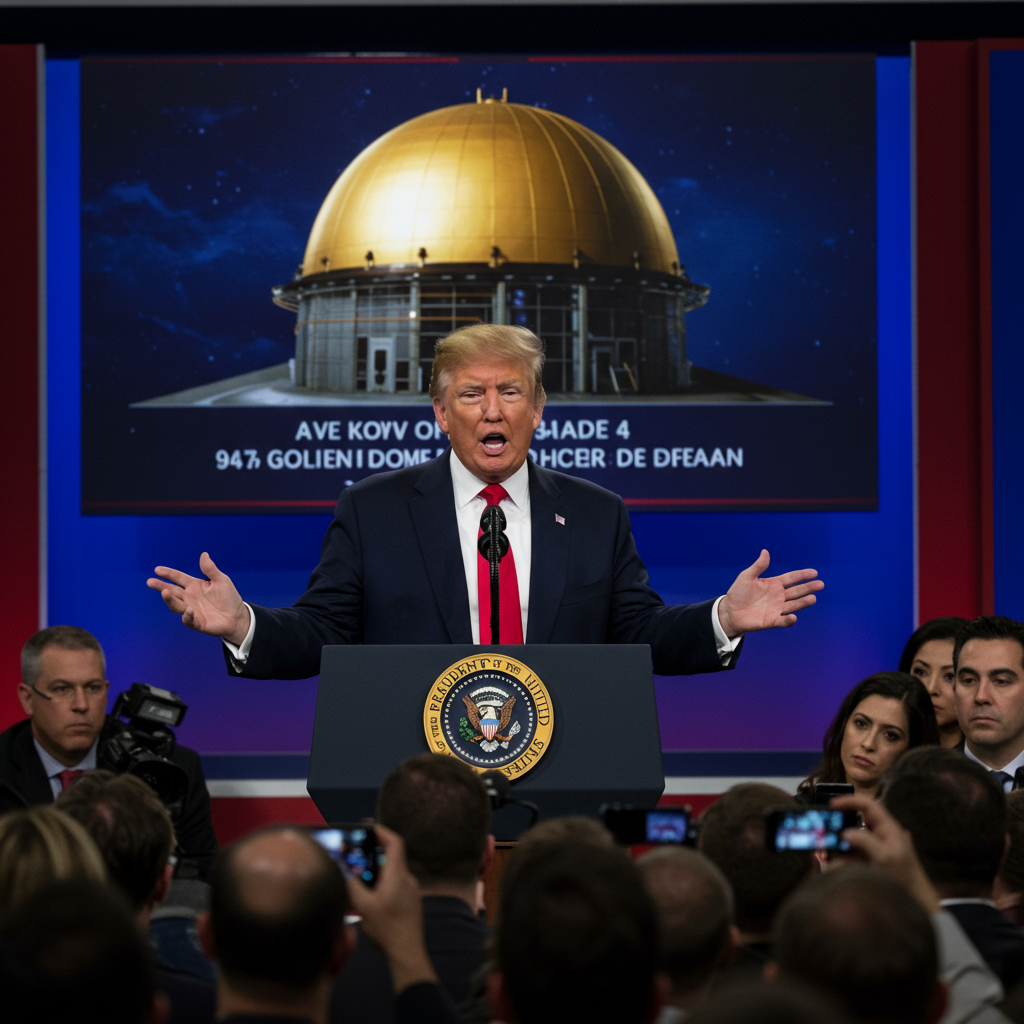The world stands “millimeters” away from catastrophe, warns Russia, amidst escalating tensions in the Middle East where the ongoing conflict between Israel and Iran has intensified, and U.S. President Donald Trump is reportedly weighing potential military action against Tehran.
Russia’s Deputy Foreign Minister Sergei Ryabkov stated that a direct U.S. attack on Iran, which Trump is reportedly preparing for the possibility of, would “radically destabilize the entire situation.” Moscow has advised the U.S. against direct involvement in the conflict that has recently claimed hundreds of lives in Iran and dozens in Israel.
Adding to the alarm, Russian Foreign Ministry spokesperson Maria Zakharova issued a stark warning, particularly citing recent strikes on nuclear facilities. She noted that these attacks have brought the world to the brink, drawing a parallel to the potential risks seen after the Fukushima disaster. The head of Russia’s SVR foreign intelligence service also described the situation between Iran and Israel as critical.
Trump’s Demands and Potential Actions
The warnings come as President Trump has openly demanded Iran’s “unconditional surrender” and publicly pondered authorizing U.S. strikes, specifically targeting Iran’s nuclear program. While Trump’s public statements have been cryptic – telling reporters, “I may do it, I may not do it, nobody knows what I’m going to do” – sources familiar with internal discussions suggest he had approved attack plans but was holding off, hoping the threat of force would compel Iran to abandon its nuclear ambitions.
Reports indicate Trump has grown comfortable with the idea of striking Iran’s deep underground Fordow nuclear facility. Experts note that destroying this site would likely require powerful bunker-buster bombs, a capability primarily held by the U.S., implying potential U.S. involvement if Israel aims for such targets. Trump has also sent strong messages directly to Iran’s Supreme Leader Ayatollah Ali Khamenei via social media, claiming to know his location and stating Khamenei was an “easy target,” though adding they were “not going to take him out (kill!), at least not for now.” He warned that U.S. patience was “wearing thin.”
Iran’s Defiance and Diplomacy
Iran has vehemently rejected Trump’s demands. Supreme Leader Ayatollah Ali Khamenei warned that any U.S. military involvement would result in “irreparable damage” to the United States, stating the Iranian nation is “not one to surrender.” Iran’s mission to the United Nations responded forcefully to Trump’s rhetoric, denying any negotiations under duress with a “has-been warmonger.”
Despite this defiant public posture, Iran has sent mixed signals. While rejecting negotiations under duress, Iran’s Foreign Minister asserted the country remains committed to diplomacy – with the sole exception of its dealings with Israel, framing its recent actions as “self-defense.”
Regarding its nuclear program, Iran maintains it is purely for civilian purposes, a stance publicly supported by Russia and in line with the Non-Proliferation Treaty. However, U.S. intelligence assessments vary, and analysts warn that Israel’s attacks might paradoxically incentivize Iran to develop nuclear weapons. Adding to concerns, the International Atomic Energy Agency (IAEA) recently reported losing track of Iran’s enriched uranium stockpile due to the ongoing conflict, unable to verify its location.
Russia’s Balancing Act
Russia, a longtime ally of Iran, is navigating a complex role. While sounding alarm bells about the potential for global devastation, especially from strikes on nuclear sites, experts believe Russia is unlikely to intervene militarily. Despite a recent strategic partnership focused on economic and military cooperation with Iran, it notably lacks a mutual defense clause.
Russia offered to mediate the conflict, with President Vladimir Putin sharing proposals with all sides. However, President Trump rejected Putin’s offer, reportedly telling him to “Mediate your own” issues first.
Experts suggest Russia, currently embroiled in the Ukraine conflict, is attempting a “fine balancing act”: appearing helpful to the U.S. while not alienating Iran. Moscow is more likely to focus on mediation efforts through international bodies.
The turmoil could potentially offer short-term benefits for Russia, such as rising global oil prices and, critically, distracting international attention from the war in Ukraine. However, Russia also faces significant risks, including regional destabilization spilling into areas of Russian influence and the potential loss of a key ally and billions in investments if the Iranian regime were to collapse.
Israel’s Objectives and Actions
Israel has intensified its campaign, stating its primary objective is to eliminate Iran’s nuclear capabilities and prevent it from developing ballistic missiles. Israeli officials express confidence in their ability to strike Iranian sites, hinting at potential U.S. support or “surprises.” Israel maintains its strikes are necessary, though reports indicate significant casualties and displacement within Iran as a result of the ongoing attacks, including on sites the IAEA previously identified as involved in centrifuge production.
Russia has publicly accused Israel of attempting to “sabotage diplomacy,” implying that Israel’s actions, particularly strikes on nuclear facilities, derailed previous U.S.-Iran talks aimed at limiting Iran’s nuclear program.
Diplomatic Landscape
Against this backdrop of escalating military threats and actions, diplomatic efforts are underway. Russia, along with China and Pakistan, requested an emergency UN Security Council meeting to discuss the crisis. European diplomats from Germany, France, and the U.K. are also scheduled for nuclear talks with Iranian officials, though the U.S. is not currently included in those specific discussions.
The high tensions between the U.S., Iran, and Israel, combined with stark warnings from global powers, highlight the precarious nature of the situation and the potential for rapid, dangerous escalation.



